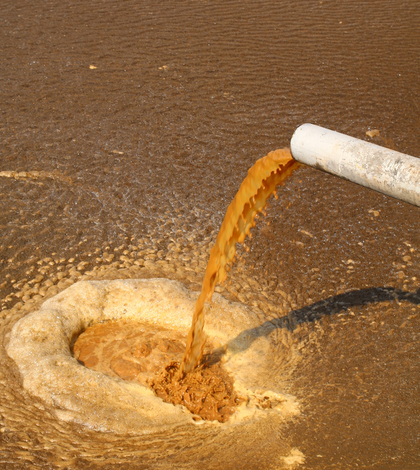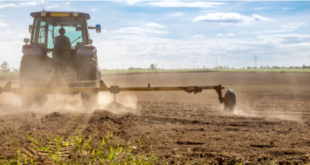Food & Water Watch, a Washington D.C.-based, non-governmental agency, has announced a campaign to ban the practice of using toxic oilfield wastewater for produce grown in California’s Central Valley. The practice threatens not only those who consume the produce but also farm workers and the environment.
Four water districts in the Central Valley — Cawelo Water District, North Kern Water District, Jasmin Mutual Water District, and Kern-Tulare Water District – receive up to 16 billion gallons of wastewater each year from Chevron and other oil companies that can be used in the systems that provide water for irrigating crops. The oilfield wastewater is minimally processed and mixed with fresh water and sold to farmers for crop irrigation.
“It’s time to shine a light on the risky yet under-the-radar use of toxic oil wastewater to grow our crops,” said Wenonah Hauter, executive director of Food & Water Watch. “People are shocked when they hear that the food—even organic food—that they give to their kids is grown in districts where this is happening.”
Brands such as Halos Mandarins, POM Wonderful pomegranate juice, Wonderful pistachios, Sunview Raisins, Bee Sweet citrus and Sutter Home wine grow some of their products in the four water districts that buy the oilfield wastewater. Nearly 40 percent of all organic produce grown in the U.S. comes from California.
Food & Water Watch has released a new documentary by filmmaker Jon Bowermaster and a campaign video to share with the public. The group also hopes to introduce a bill in Sacramento that would outlaw the practice in California. Thus far, Food & Water Watch and partner organizations have gathered nearly half a million signatures from people opposed to the practice and calling for action to stop it.
“This practice is more deceptive than even pink slime,” said Adam Scow, Food & Water Watch California’s director, (in reference to the controversial industry practice of mixing heavily processed, disinfected beef scraps into hamburger.) “So-called healthy brands grown in these districts are using toxic waste to grow crops and then labeling them as pure goodness.”
Crops are not routinely tested for toxic chemicals. A recent study found that nearly 40 percent of the chemicals used by the companies providing oil wastewater to the districts are classified as “trade secrets” or could not otherwise be identified. However, known chemicals include several that cause cancer or reproductive harm, such as ethylbenzene and toluene. Food & Water Watch alleges that the toxic wastewater could include up to 173 different chemicals that potentially could end up in the water used to irrigate popular crops that are shipped across the country.
“This is the produce industry’s dirty little secret, but word is getting out,” said Hauter. “Now, it’s time to demand that the state stops endangering our health with the toxic byproducts of the … oil and gas industry in the state.”
 California Water News Daily Your Source For Water News in California
California Water News Daily Your Source For Water News in California


